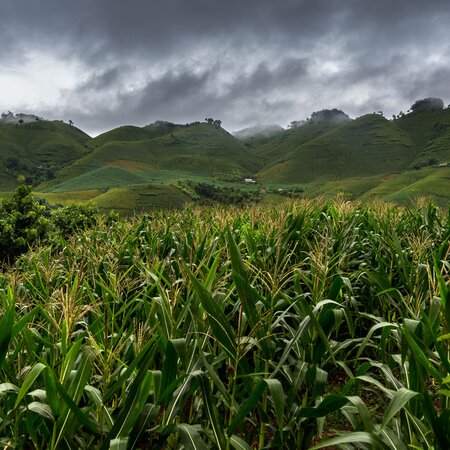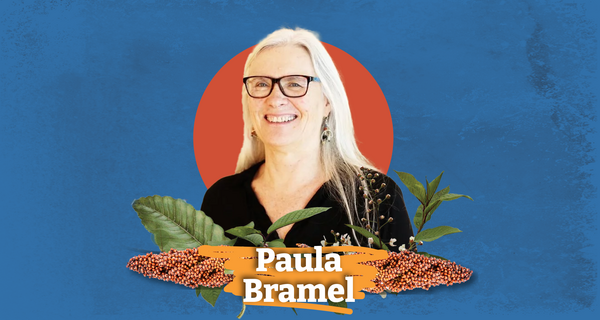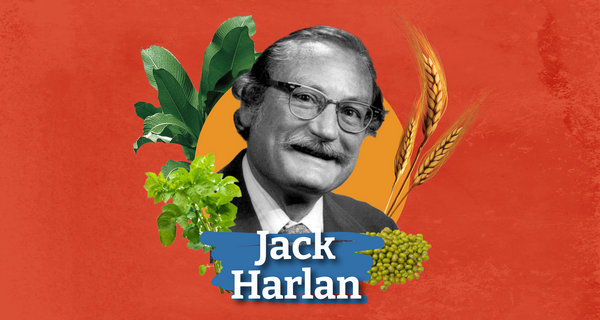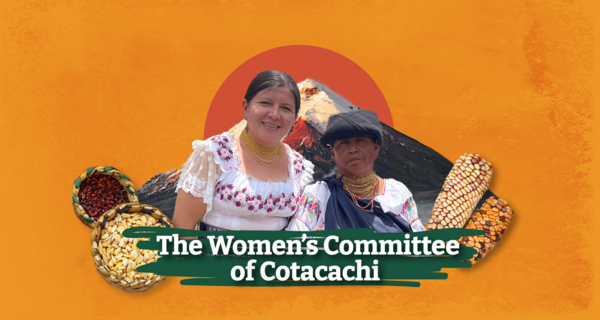Vania Azevedo: Building a Legacy, One Genebank at a Time
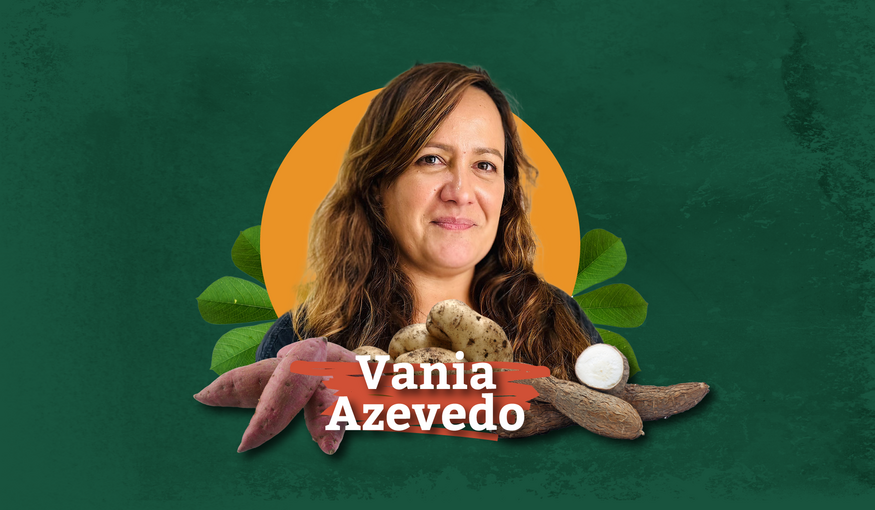
8 October 2025
In this edition of our Seed Heroes series, we salute Brazilian scientist Dr Vania Azevedo, who was just tapped to lead CGIAR’s global genebanks. In her previous job, her tireless advocacy for crop diversity helped create world-class facilities to conserve the genetic foundations of our potatoes.
Few people would associate agriculture with science fiction. But to Dr Vania Azevedo, the future for some of our most important crops lies in space-age containers that preserve plant life at ultra-sub-zero temperatures for centuries.
As head of the genebank at the International Potato Center (CIP), the 45-year-old Brazilian scientist has spent the past four years creating a state-of-the-art cryopreservation facility. It is designed to safeguard the diversity of potato, sweetpotato, cassava and other crops that cannot be conserved as seeds. These crops are typically grown by taking cuttings of existing plants. Since all of the cuttings are clones of the original individual, these plants are sometimes referred to as clonal crops.
“It’s like those science-fiction movies where people freeze themselves,” she says. “We can’t quite do that for the human body, but we can do it for plants.”
In recent years, Azevedo has led CIP’s drive to build a cryopreservation hub for clonal crops in Latin America. Until now, these crops have been conserved mostly in fields and in tissue culture, which is also known as in vitro – literally, in glass, in Latin – because of the glass test tubes that are used.
Previously, CIP would back up in vitro potato plants at the Embrapa genebank in Brazil and sweetpotato plants at The Alliance of Bioversity and CIAT’s Future Seeds genebank in Colombia. Every year, Azevedo’s team would make three shipments to each facility to safety duplicate the CIP collection.
“With cryopreservation, you do that only once,” Azevedo says. “It’s cheaper and safer, and you don’t need to do it all the time. That is the future for clonal crops.”
CIP’s Cryopreservation Vault – which launched in 2024 – will welcome the first deposits during the Crop Diversity Day event in November 2025. The Cryo Vault will complement the Svalbard Global Seed Vault, the ultimate backup facility for seed genebanks.
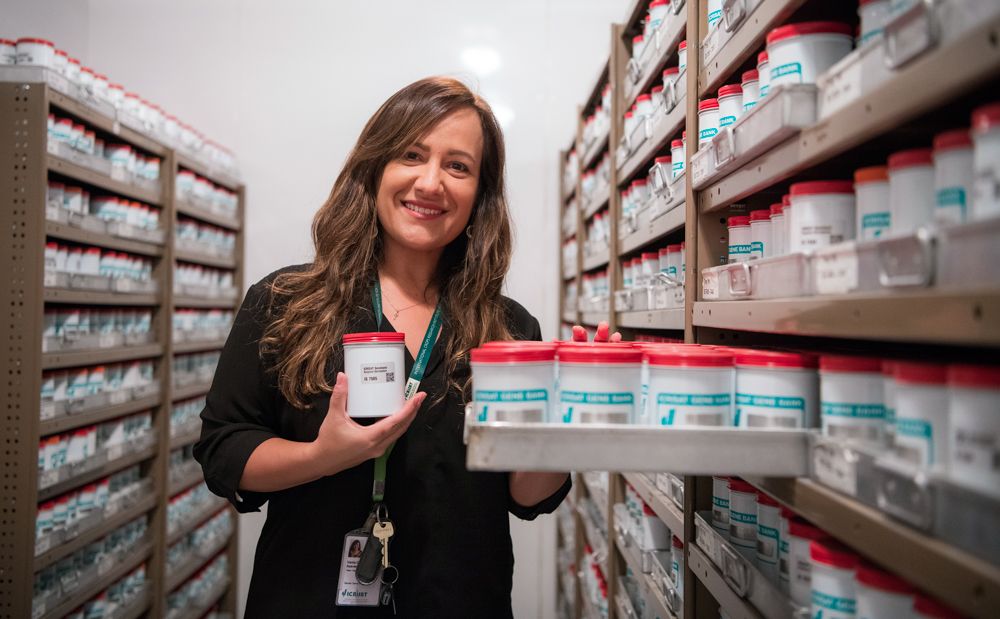
Vania shows seeds conserved at ICRISAT’s genebank. Photo: Michael Major/Crop Trust
Head of the CGIAR Genebank Accelerator
In October 2025, Azevedo began work as Director of the CGIAR Genebanks and its network of 11 international genebanks after holding the position on an interim basis for the past year.
She brings to the role almost 20 years of experience safeguarding the genetic foundations of our food system. Before leading the CIP genebank, Azevedo supervised and coordinated crop diversity conservation at Embrapa in Brazil and the International Crops Research Institute for the Semi-Arid Tropics (ICRISAT) in India.
In each post, the Brazilian scientist showed a knack for persuading institutions to let her build new facilities. At Embrapa, she overhauled its 40-year-old laboratory. At ICRISAT, Azevedo opened a new building for post-harvest activities, upgraded the seed-processing area of the genebank, and oversaw the construction of a dedicated area to support seed drying. And at CIP, she was instrumental in building the Cryo Vault for clonal crops.
“It’s probably something that I inherited from my father, who was an engineer,” Azevedo says. “I am always building things. I see this as one of my main achievements.”
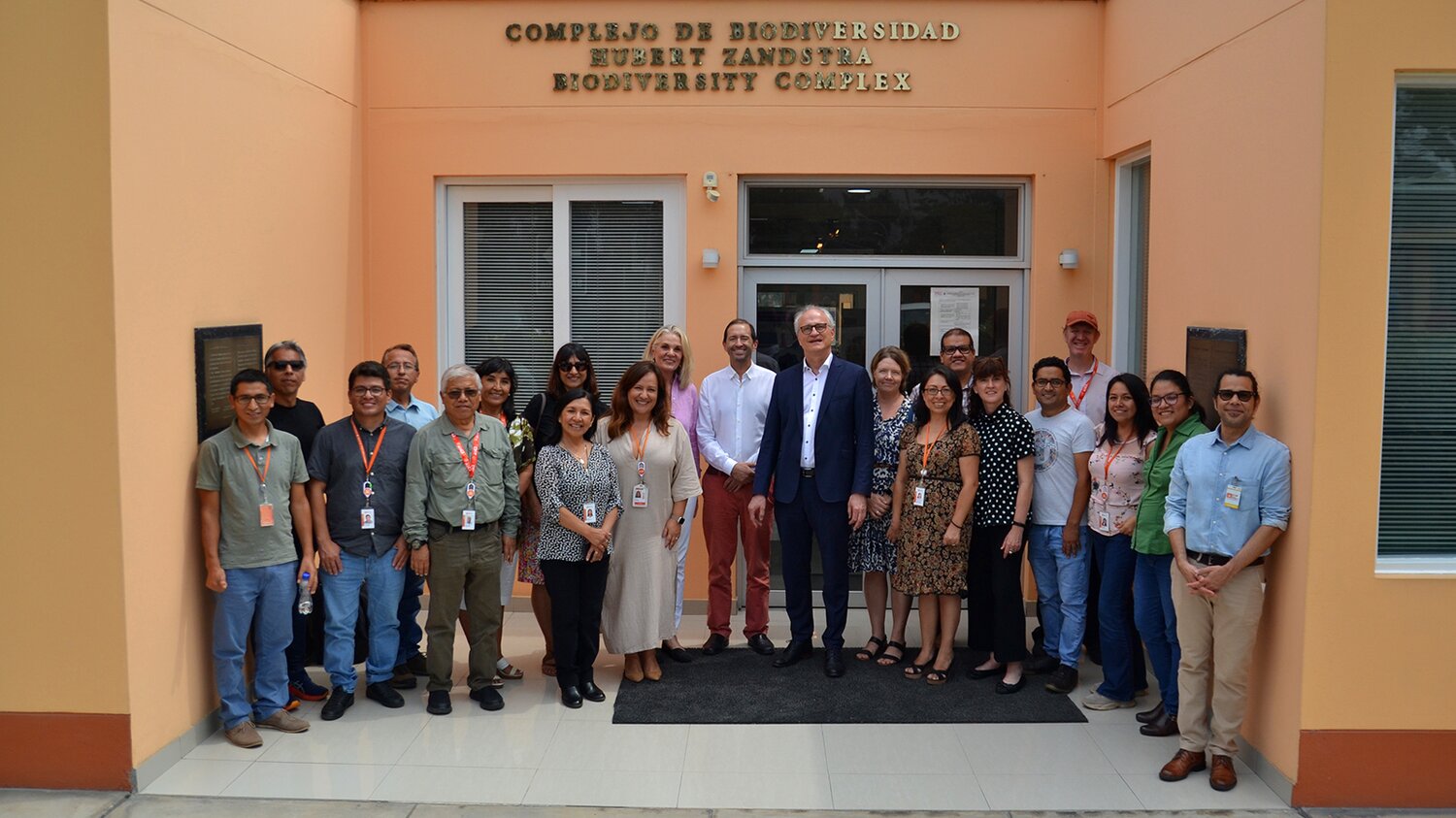
Vania and CIP colleagues welcome representatives from the Crop Trust at their headquarters. Photo: CIP
Farm Holidays, Lasting Lessons
Vania Cristina Renno Azevedo was born in Brasilia, the capital of Brazil, in 1980. Her father was an electrical engineer at a private company, and her mother is an accountant. Her grandparents on both sides of the family were farmers.
As a child, she spent vacations on their farms in the state of Minas Gerais in southeastern Brazil. Her grandparents raised cattle, and grew beans and rice. These were the first two crops she encountered in life, and perhaps not coincidentally are the basis of Brazilian diets.
Azevedo’s awareness of crop diversity began early through her paternal grandfather, who had a curiosity about seeds and their potential. Later, after she became a biologist and joined Embrapa, her grandfather realized that he suddenly had direct access to the scientists who could help him identify his seeds.
“Every time I went to visit him, he would give me seeds and ask me to find out what they were exactly,” she says. “I think somehow seeds have been with me since I was young.”
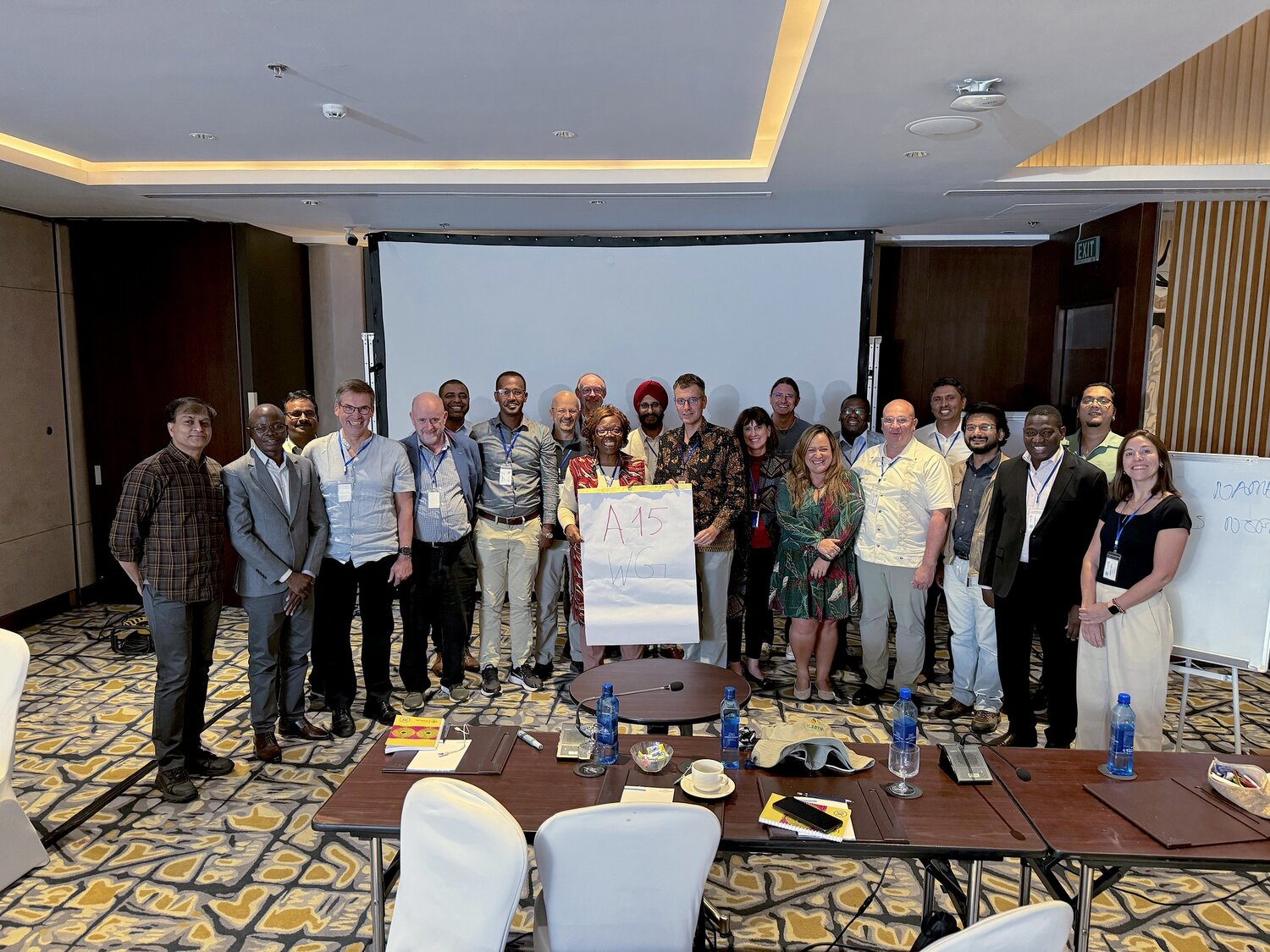
Vania with fellow genebank managers and partners. Photo: CGIAR
True Passion
Azevedo completed bachelor’s and doctoral degrees in the biological sciences at the University of Brasilia. Her passion for conserving crop diversity emerged in 2010 after attending a course on the topic at Wageningen University & Research.
“That was life-changing for me as I started to become more involved in ex situ plant conservation,” she said in an interview. Ex situ means conservation in genebanks.
Azevedo then dedicated herself to conserving crop diversity at Embrapa, creating and curating the Plants DNA Bank, while overseeing fibre and oil crop collections. In 2018, she went on to ICRISAT in India, where she coordinated all genebank activities.
At CIP, where she started in 2021, Azevedo recognized the huge demand in Latin America for cryopreservation of the genetic diversity of potato, sweetpotato and cassava – all of which originated in the region – as well as many other plants. She decided to do something about it.
“Ideally, in 10 or 20 years, we will have a Svalbard Global Seed Vault for clonal crops,” she says. “But we are starting regionally because there is still a lot to do to get the diversity cryopreserved. It is also easier to find funding if you can show regional improvements. One step at a time.”
While she relishes her job as a trailblazing scientist conserving crop diversity for present and future generations, Azevedo still shares her father’s dream of going back to the farm.
“Unfortunately, he didn’t manage to do that before he passed, so hopefully I will accomplish the dream on his behalf,” she says.
The Crop Trust celebrates the ongoing achievements of Vania Azevedo. Her leadership in advancing the cryopreservation of clonal crops supports global food security now and for generations to come. Dr Azevedo is paving the way toward a brighter future and helping fulfil the Crop Trust’s mission.
Timeline:
- 1980: Born in Brasilia, Brazil
- 2002: Bachelor’s degree in biological sciences at the University of Brasilia
- 2007: Doctoral degree in molecular biology at the University of Brasilia
- 2008: Stephen J. O'Brien Award for best student paper published in the Journal of Heredity
- 2011: Bachelor’s degree in business administration at the University of Brasilia
- 2007–2021: Scientist for plant genetics and genetic resources at EMBRAPA
- 2012–2018: Leader of Embrapa’s Network of Plant Genetic Resources
- 2016–2018: Representative of Brazil at the FAO Intergovernmental Working Group on Plant Genetic Resources for Food and Agriculture
- 2018–2021: Head of the Genebank at ICRISAT in India
- 2021–2025: Head of the Genebank at CIP in Lima, Peru
- 2024–2025: Interim Director of CGIAR Genebanks
- 2025–current: Director of CGIAR Genebanks
Categories: For Partners, Potato, Sweetpotato, Food Security

